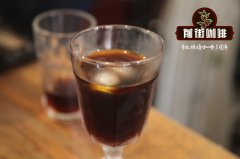The Perdo Rodriguez Story of Bolivian Rose Summer the characteristics of Rose Summer Coffee beans in Arasi Manor

Professional coffee knowledge exchange more coffee bean information please follow the coffee workshop (Wechat official account cafe_style)
When it comes to the Bolivian coffee brand: Perdo Rodriguez, it can be said that everyone in the boutique coffee industry knows it, and it can almost be said to be the flame of hope for the revival of Bolivian coffee. Not only are there many boutique coffee trend cards, such as intellectuals regularly grab beans every year, Japan's Maruyama Coffee representative Miki Suzuki won the championship in Japan using the Bolivian Rosa / Geisha of Pedro's estates and won the runner-up in the 2017 World Championships.
Perdo Rodriguez manages the army strictly, the pursuit of coffee quality details is almost to the point of paranoia, social care and industrial revival is tireless, can be said to be a model figure in the boutique coffee industry. We say too much here, we can see it at a glance from the photo. I don't know what to wait for if we miss this. 100% hand-picked red cherries, elevated scaffolding sun treatment, extremely rare sun-dried pearl beans.
Short comments on Bolivian Rosa Flavor:
Dry aromas can feel peach, wine, sweet strawberries, berries. The entrance can feel the rich aromas of mango, wine and passion fruit, with sweet aromas of peaches, berries and strawberries, floral aromas, solid and complex overall flavor.
Bolivian summer Yonggas Carla Nabi Arasi Manor sun-dried pearl beans
Bolivia Yungas Caranavi Bolinda Finca Las Alasitas Peaberry Natural
National Bolivia (Bolivia)
Caranavi in the producing area
Manor Alacita (Finca Las Alasitas)
Producer Pedro Rodriguez
100% hand-picked red cherries and elevated scaffolding in the sun
Variety 100% rose summer round bean
1600-1650 meters above sea level
Bolivian coffee cultivation has an absolutely excellent growing environment and is the potential unit most likely to produce quality coffee, but Bolivian coffee has been declining rapidly in recent years, which is why there is less and less Bolivian coffee on the market.
There are few records of Bolivian coffee, but it can be seen that coffee only began to be traced in Bolivia in the 1980s.
Bolivia is one of the countries with the highest average elevation, with the Amazon alluvial plain in the north-east, accounting for more than half of the country's area; the central part is a valley area with well-developed agriculture and urban areas, belonging to the Andes; and the west is the Bolivian plateau, with an average elevation of more than 1000 meters.
Because of its high altitude, Bolivia has a more famous "sky land" than coffee-Uyuni salt marshes. In the western plateau of Porto Province, Bolivia, 3656 meters above sea level, feel the magic of a TA!
Bolivia has savanna climate, subtropical climate and mountain climate. Therefore, it has an ideal environment for growing coffee: high altitude, dry and wet climate is obvious. Coffee tree species are mainly ancient native species Tibika and Kaddura.
Bolivia has a small population and the country is poor. Natural gas, minerals and agriculture are the main development projects of the national economy. The cultivation of coffee is very limited because coca leaves, which are used to produce drugs, have a better place here than coffee, and the market for coca leaves is stable and the price is higher than coffee, so coffee cultivation is not so focused.
In 2010, coffee prices rose, and with the support of an anti-drug program in the United States, many farmers in Bolivia began to switch to coffee. But with the price of coffee unstable, so does the tendency of farmers to grow coffee or coca leaves.
In recent years, high-quality coffee exported from Bolivia has not spread TA places of interest. It is not only because Bolivian farmers struggle with what crops to grow, but also because of the inconvenient transportation and transportation difficulties in Bolivia.
In the past, Bolivian coffee was removed directly from the pulp after it was ripe and transported all the way to the processing plant for centralized treatment. In the process of transportation, coffee will be greatly reduced in quality and quantity because of weather, temperature, humidity and other reasons.
Later, some obsessive-compulsive coffee growers, in pursuit of the excellent quality of coffee, began to process the coffee after picking on their farms. Coupled with financial support from the US anti-drug program, several small processing plants have been set up in Bolivia, which has improved the quality of Bolivian coffee.
From beginning to end, Bolivian coffee beans have not been as famous as their neighbors Brazil and Colombia, but Bolivia's excellent coffee is really worth a try.
But Bolivian coffee: the taste is pure and sweet, with rich aromas of flowers, fruits and fruits, and a special nutty flavor.
END
Important Notice :
前街咖啡 FrontStreet Coffee has moved to new addredd:
FrontStreet Coffee Address: 315,Donghua East Road,GuangZhou
Tel:020 38364473
- Prev

Bolivia Plamela Fair Trade Coffee Bean introduction _ Bolivian Plateau Coffee beans good
Professional coffee knowledge exchange more coffee bean information please follow the coffee workshop (Wechat official account cafe_style) Bolivia Plamela Fair Trade Coffee contains an excellent and complete flavor, floral, chocolate, malt, sweet berry flavor and thick taste. When the coffee temperature continues to drop, different levels of taste will be surprising, the most classic Bolivian coffee
- Next

Washed Tibica Coffee beans in Yonggas Town, La Paz County, Bolivia _ Bolivian Coffee Flavor
Professional coffee knowledge exchange more information about coffee beans please follow Coffee Workshop (Wechat official account cafe_style) Bolivia is a landlocked country in South America and a member of the Union of South American Nations. Neighboring countries include Brazil, Peru, Chile, Argentina and Paraguay. The legal capital is Sucre, but the actual seat of government is La Paz, which is above sea level.
Related
- Detailed explanation of Jadeite planting Land in Panamanian Jadeite Manor introduction to the grading system of Jadeite competitive bidding, Red bid, Green bid and Rose Summer
- Story of Coffee planting in Brenka region of Costa Rica Stonehenge Manor anaerobic heavy honey treatment of flavor mouth
- What's on the barrel of Blue Mountain Coffee beans?
- Can American coffee also pull flowers? How to use hot American style to pull out a good-looking pattern?
- Can you make a cold extract with coffee beans? What is the right proportion for cold-extracted coffee formula?
- Indonesian PWN Gold Mandrine Coffee Origin Features Flavor How to Chong? Mandolin coffee is American.
- A brief introduction to the flavor characteristics of Brazilian yellow bourbon coffee beans
- What is the effect of different water quality on the flavor of cold-extracted coffee? What kind of water is best for brewing coffee?
- Why do you think of Rose Summer whenever you mention Panamanian coffee?
- Introduction to the characteristics of authentic blue mountain coffee bean producing areas? What is the CIB Coffee Authority in Jamaica?

